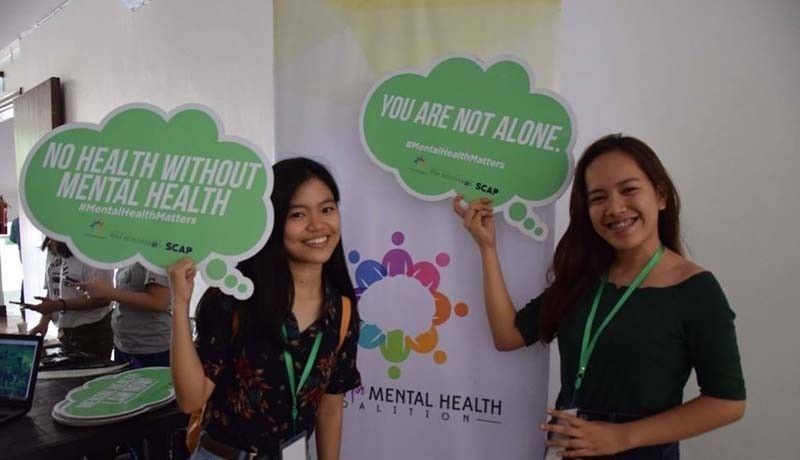CHR on movie poster: Media should be more sensitive on mental health issues

MANILA, Philippines — Mass media should be sensitive in tackling issues related to mental health, groups said Sunday after a movie poster drew backlash over its "stereotypical" and discriminatory portrayal of persons who may have mental health issues.
Many had hit the poster for the upcoming film "Tililing", by a filmmaker who had figured in a series of controversies over his output in the past.
The word that had been used for the film is considered a derogatory term in Filipino culture, where advocates have sought to struggle against the decades-long problem of having mental health conversations as taboo and those grappling with it dealing with the stigma.
In a statement, the human rights commission expressed alarm over the incident, and said it does not help efforts to curb misconceptions on the larger picture.
"Marami sa ating mga kababayan ang hahaharap sa iba't ibang mental health challenges na nahihirapang humingi ng tulong dahil sa stigma," CHR said. "Kung kaya't kinakailangan nating maging mas sensitibo sa pagtalakay ng isyung ito lalo na sa larangan ng mass media."
(Many of our countrymen are faced with different mental health challenges and are having difficulty seeking help due to the stigma. This is why mass media should be more sensitive in discussing this issue.)
Over the course of the pandemic, there had been reported surges in hotline calls to the National Center for Mental Health on Filipinos seeking help, with its average monthly calls reported to have been at 907, some 53 of which were suicide-related.
By October 2020, initial results of a health department survey would show that around 3.6 million in the country are suffering from mental disorders amid the health crisis. Of the said calls to the NCMH, ages of those who sought help were from 18 to 30 and were mostly women.
In a separate statement, the Psychological Association of the Philippines said stigma remains as the "most common barrier" to Filipinos wanting to seek medical attention on their mental health.
The group said that media are just one source of messaging, but nonetheless "have an important role in determining public attitudes to mental illness."
"Limited communication of some media with mental health professionals...who are most responsible for mental health have adverse health effects and contribute often to the wrong information spoken to the public about mental patients and the events associated with them," PAP said.
It added that long-term strategies should be rolled out to fight the said stigma and urged mass media to aid in reducing the ongoing stigmatization of mental health.
"If the mass media can have a negative influence on the perception of mental illness, it is reasonable to expect that it should also be able to exert a positive influence to reduce stigma," the group said.
If you’re experiencing an emotional crisis and in need of help, you may contact Hopeline’s hotline at 804-4673, 09175584673 and 2919 (toll-free for Globe and TM subscribers); or the NCMH hotline at 0917 8998727 (USAP) and 9898727 (USAP)
- Latest
- Trending































